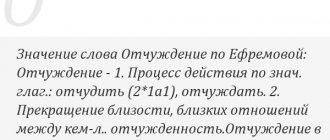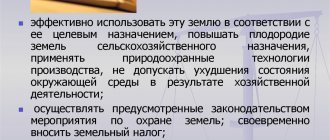Having owned an allotment, the owner can dispose of it at his own discretion: sale, exchange or withdrawal. It does not matter who owns the plot - an individual, an organization or a municipal body. The object of the agreement may be leased or in the process of sale. Based on legal acts, alienation of a land plot is an operation that results in the transfer of property rights in favor of another person.
How does withdrawal take place?
It can be carried out on a voluntary basis or as a result of a court order. The operation is regulated by the Civil Code and Land Code of the Russian Federation. The procedure and conditions for the alienation are determined by Article 52 of the Land Code.
Transactions that do not involve the transfer of rights to own land (this applies to leasing or management by proxy) are not considered a withdrawal. As a result of the transaction, the owner transfers all his rights in favor of the declared person. If the rights are not transferred to the new owner, then such an agreement cannot be valid.
Reasons for entering into a deal:
- Purchase and sale of allotment or other transactions for the transfer of rights in favor of third parties.
- Confiscation of real estate at the initiative of the state.
- Acts of administrative significance.
The strip of land subject to seizure must be analyzed from the point of view of its negotiability. First of all, territories with nature reserves, burial grounds, and national parks are considered.
As a result of the operation, the owner put on:
- Lost rights. He is prohibited from using the alienated territory at his own discretion and, as a result, it is impossible to make a profit from it.
- Inability to carry out transactions with the seized plot. The deal provides for the deprivation of absolutely all rights.
- Released from duties. The owner is relieved of the obligation to pay taxes for the ownership of private land, organize security and other activities.
Conditions of alienation
The law outlines the conditions for the alienation of plots. Among them:
- The turnover capacity of the object. The Land Code establishes categories of lands that are withdrawn from free circulation. Transfer of rights to them is prohibited.
- In accordance with the terms of the State Property Fund (with or without the consent of the owner), ownership of the object (land ownership and land use) is transferred to another person.
Categories of land prohibited for circulation
Land used for the following purposes is prohibited for circulation:
- subjected to degradation (pollution with hazardous substances, waste, radiation elements);
- used for the production of poisons and drugs;
- for the needs of communications and transport enterprises;
- protected natural areas.
Land plots prohibited for circulation due to the location of objects
Land plots on which the following objects are located are excluded from circulation:
- closed administrative-territorial entities and the objects on the basis of which they are formed;
- from the water and forest funds;
- structures to protect the border of the Russian Federation;
- burial;
- related to the production of nuclear energy and nuclear waste;
- federal security and state protection organizations;
- buildings in which military courts are located;
- buildings for the activities of the Armed Forces and other troops;
- nature reserves and national parks;
- hydraulic structures;
- space infrastructure;
- to ensure defense;
- valuable cultural objects.
Alienation of land: types
It can be voluntary or compulsory.
In the first case, the process of transfer of rights is carried out voluntarily by the owner. This may be a transaction in the form of a purchase or sale, as a gift or by inheritance.
Forced seizure involves manipulation of an allotment without taking into account the will of the owner or on the basis of a court decision. This may be confiscation of property by a court verdict, based on the confirmed fact of misuse of the site (when determining the territory for farming, the peasant must use it for planting crops, raising livestock, etc.). The land strip is transferred to the ownership of the authorities for state use.
Any of the types can be paid (with monetary compensation after completion of the procedure - a purchase and sale transaction, exchange, transfer for state use) or free of charge (as a gift).
If this is the alienation of land at the initiative of the owner, then compensation is indicated in the purchase and sale agreement, on lifelong maintenance. The gratuitous procedure is formalized in the form of a will or a gift agreement.
Documents for alienation
In order to formalize the alienation of a land plot in accordance with the requirements of the law, the owner must submit documents for the object.
The following documents are required to be provided:
- extract from the Unified State Register of Real Estate;
- document of ownership (certificate, purchase and sale agreement);
- the result of the site examination;
- independent assessment;
- code of all owners of the object.
Special documents
There is a list of documents required to be provided subject to certain conditions. Among them:
| No. | Condition | Document |
| 1 | The owner is officially married, the property was acquired during the union | Certificate of marriage, consent of the spouse, certified by a notary |
| 2 | The citizen was previously married, the property was acquired during this period | Divorce certificate |
| 3 | The object/part of it belongs to a minor citizen | Birth certificates, permission for the transaction from the district guardianship department at the place of registration of the child or at the location of the property |
| 4 | The transaction is carried out not by the owner personally, but through a representative | Representative's passport, power of attorney |
Important! Collecting documents and their execution (notarization, obtaining guardianship permission) takes some time, so it is necessary to proceed with the transaction after receiving all the papers.
Conditions of withdrawal
Operations for the alienation of land holdings are carried out according to the rules enshrined in Article 52 of the Land Code of the Russian Federation. To complete the procedure, the following conditions must be met:
- Transactions are carried out without forceful involvement of a third party, solely by the good will of the owner.
- It is allowed to take from the owners only those lands that are officially registered in the cadastral register.
The agreement is legal provided that the owner himself is present. If this is difficult, then there must be an authorized person whose rights are certified by a notary.
If the site is not private property, then the state has full rights to it. Territories with protected areas and defense facilities located on them are not subject to seizure.
The taken territories are not provided to persons whose agricultural activities are not registered. Only persons with Russian citizenship or legal rights can accept taken away land plots. a person where more than half of Russian citizens.
The procedure for alienation of land plots
The process involves the following steps:
- An agreement is drawn up and certified by signatures. The document is determined by the type of transaction (sale, donation, will).
- An act of acceptance and transfer of land is drawn up.
- The parties to the agreement with a package of documents apply to the regional office of Rosreestr, where it is registered.
In case of alienation of plots through auction, the owner additionally needs:
- Provide an application for bidding.
- List of participants (they must collect a complete package of documents).
- Preparation of allotment (paperwork and determination of boundaries).
After the completion of the auction, an agreement is concluded between the entities for the lease of land or its sale.
Package of documents for drawing up a withdrawal agreement:
- Document on the subject of the contract.
- Certificate of assessment of the value of the plot of land, issued by an authorized body (expert company).
- Certificate of presence or absence of buildings on the site from the BTI, communications.
- Owner's passport.
- Notarized consent of the spouse to conduct the transaction (in case of marriage).
Alienation of part of a privately owned land plot
It cannot be partially transferred into the ownership of another person. An officially defined plot, the boundaries of which are fixed, cannot have multiple owners. First, the required part is separated and surveyed. The allocated land must be registered as a separate property.
A territory whose boundaries are not defined can be leased, that is, where transfer of ownership is not required.
In most cases, the seizure of buildings cannot be carried out separately from the plot. If it is necessary to seize a structure, it is necessary to delimit the plots and register them in the name of the seller. Next, the part where the building is located is alienated.
Is it possible to avoid confiscation of land?
Authorized bodies may carry out seizures only in certain cases provided for by Federal laws:
- As a result of the execution of contracts between states.
- To properly ensure the movement of transport or communications when there is no other alternative.
- At the initiative of monopoly organizations on the government list.
If the land is taken for the benefit of the state, the agreement provides for compensation. Alienation of land is a legal procedure for transferring ownership. Most often it is carried out at the owner’s own will. An important point: the procedure can be canceled if the land plot is leased or other restrictions are imposed on it.
In some cases, it is possible to return the land plot back. If the transaction was carried out with violations, then it can be challenged. In this case, the property is returned to the former owner. An exception is if the plot was confiscated and sold through auction.
If the forced alienation has been protested and the plot has already been sold at auction, the former owner will only be able to claim monetary compensation.
Forced alienation of land
Russian legislation provides that in certain situations, when a land plot is withdrawn, the will of its owner does not matter. Most often this is the result of violation of land use rules. In such situations, an unscrupulous owner cannot count on compensation for losses incurred.
If the deprivation of the owner of his plot is not a consequence of an offense, he can claim compensation for its value (for example, when the land was seized for the needs of the state). The land in accordance with clause 3 of Art. 35 of the Constitution of the Russian Federation can be taken away from the person in whose possession it is located only when an appropriate court decision is made.
A land plot is subject to seizure from the owner if:
- the court made a decision on its confiscation in connection with serious violations of the rules for the exploitation of land (before this, in a pre-trial procedure, the owner receives a warning about the violations and an order to take measures to eliminate them);
- the plot was taken from the owner to pay off accumulated debts;
- it is necessary for the needs of the state or municipality in the cases provided for in Art. 49 of the Land Code of the Russian Federation (a citizen in such a situation is reimbursed for its cost or another similar plot is allocated);
- the plot was temporarily requisitioned in accordance with paragraph 1 of Art. 51 of the RF Land Code in connection with the occurrence of force majeure (natural disasters, man-made accidents, epidemics).
Example
Citizen F. filed a complaint against Zh.S. a lawsuit demanding the recovery of a plot of land from him to pay off alimony debts. During the meeting, it became clear that enforcement proceedings were being carried out against him to collect the debt. It was established that the defendant was not officially employed, there were no funds in his accounts, and he himself was hiding in a country house. J.S. referred to the fact that he had not received a copy of the writ of execution. Since the claim was not satisfied, F. filed an appeal against the court decision. The appellate court determined that if the debtor does not have a sufficient amount of money, alimony is collected from his property, i.e. piece of land. Thus, the plaintiff’s demand was satisfied (appeal ruling of the Moscow Regional Court dated August 27, 2018).
If the owner is threatened with seizure of land due to his fault, to prevent such a course of events it is enough to promptly eliminate the violations committed or fulfill the obligations assigned to him.
Clarification of difficult points
Share in the plot
First of all, its co-owners have the right to purchase the plot. In the event of no response or refusal, the object of the agreement is acquired by any buyer.
Without land surveying
A plot whose boundaries are not fixed cannot be donated, sold, or transferred as an inheritance. The new changes came into force on January 1, 2021. This applies to plots intended for personal farming, gardening and horticultural work, and construction of housing for one’s own needs. Even if you have a document confirming land rights, it is necessary to carry out land surveying.
No structures on site
Typically, a territory without a house located on it cannot be taken, but there are a number of nuances:
- A part of the structure that is not allocated along with part of the allotment can be withdrawn.
- A building is alienated if the land on which it is located is withdrawn from circulation.
According to Article 35 of the Land Code of the Russian Federation, if a person becomes the owner of a building located on someone else’s plot, then he can lay claim to the territory occupied by the structure and other area necessary for its maintenance. The owner of the building has the first right to purchase the land under the building.
If there was privatization
A privatized building (even in the case of unfinished construction) becomes the property of the person who bought it along with the plot of land under it.
A structure on state or municipal territory must first be registered as a building for rent or purchased from its owners in the manner prescribed by law.
The seizure of territory without an owner in the SNT (horticultural non-profit partnership) is no different from the privatized plot of another territory. In the absence of an officially confirmed owner, the garden plot is the property of the state.
Thus, the alienation of an allotment has its own characteristics, knowing which any owner will be able to correctly formalize the operation in a short time without additional costs, both financial and temporary. What you need to remember is that only after registration of the new owner in Rosreestr will the transaction be officially completed.
In what order is the plot alienated?
When alienating land, it is necessary to take into account the provisions of the Land Code of the Russian Federation and the Civil Code of the Russian Federation. The procedure differs depending on whether the transfer of ownership is voluntary or forced.
With the voluntary expression of the will of the parties to the transaction, the following sequence of steps is assumed:
- Prepare documentation confirming the applicant’s ownership of the land (agreement, deed of inheritance).
- Visit the municipal administration with a statement of intention to transfer the right to the plot to another person.
- After conducting verification activities, authorized employees of the settlement administration must issue a conclusion that the applicant’s actions do not contradict the law.
- Receive an extract from the Unified State Register of Real Estate about the site and a cadastral plan of the territory. To do this, the applicant must contact the Rosreestr office or order the production of documentation on the EGRN website. It is also possible to submit an application for the provision of relevant services through the MFC.
- If necessary, order an expert assessment of the market value of land ownership.
- Prepare a document according to which the object is transferred to the new owner (sale or exchange agreement, deed of gift or other agreement). Confirm it with the signatures of the parties.
- Approve the concluded transaction with a notary.
- Pay the state fee for obtaining notary services.
- Contact Rosreestr again to register the agreement reached.
If no problems arise during the transaction, it will be completed within 2-4 weeks.
If the owner renounces the right to a land plot, it is necessary to submit an application to the rights registration authority (Rosreestr). If the right to permanent (unlimited) use is waived, an application is submitted to a state authority or local government. In addition to your passport, you will need to provide a document certifying your land rights.
In case of transfer of land by inheritance, the heir must accept the share due to him.
When the seizure of land is forced (due to violations committed by the owner), the procedure has its own specifics:
- The landowner is notified that he is not complying with the law or the terms of the agreement and is ordered to correct the situation.
- If the owner fails to act, a lawsuit is filed against him with a demand to seize the land that belongs to him.
- If the defendant's actions are found to be unlawful, the claim for seizure of real estate is satisfied. Then a writ of execution is issued, on the basis of which the bailiffs seize the land plot.
- Land taken from an unscrupulous owner becomes the property of the municipality, creditor, or is sold at auction.
Litigation can last for a very long time; in complex cases, the consideration of cases often lasts more than a year.
Land for the needs of the state or settlement may be withdrawn in accordance with Art. 56.2 of the Land Code of the Russian Federation by decision of executive authorities at the level of the state, subject of the Russian Federation or municipal entity. The text of the petition includes the purpose for which the land must be used. Information about land planned for seizure must be published in accordance with paragraph 5 of Art. 56.5 of the Land Code of the Russian Federation. A copy of the decision to seize the territory must be sent to its owner (Article 56.6 of the Land Code of the Russian Federation).










